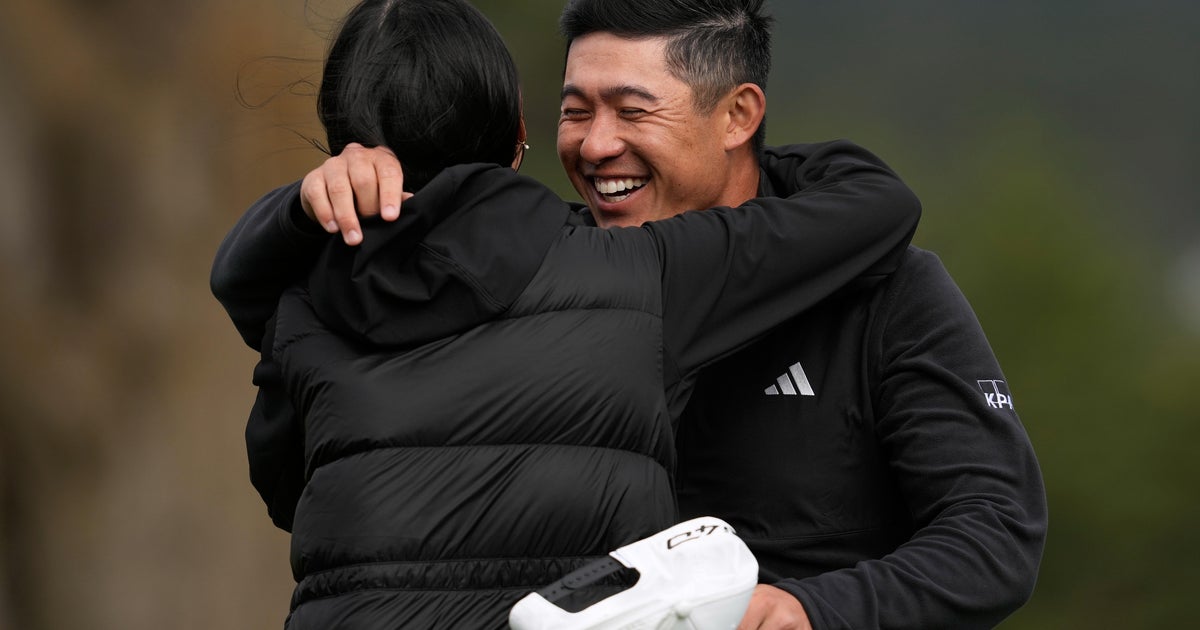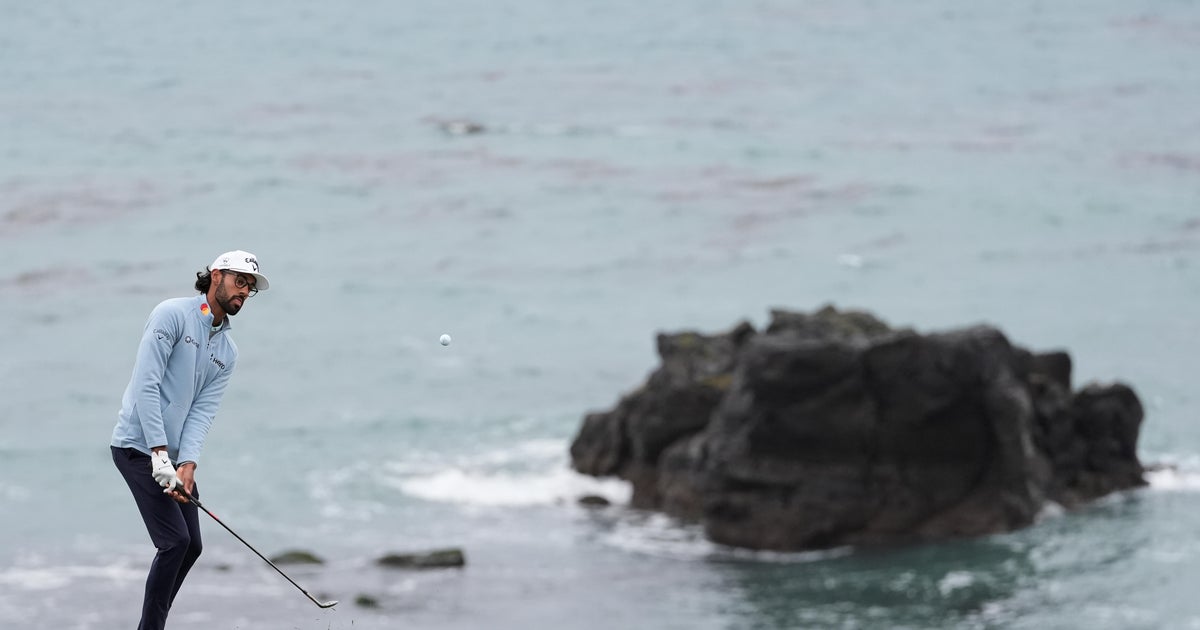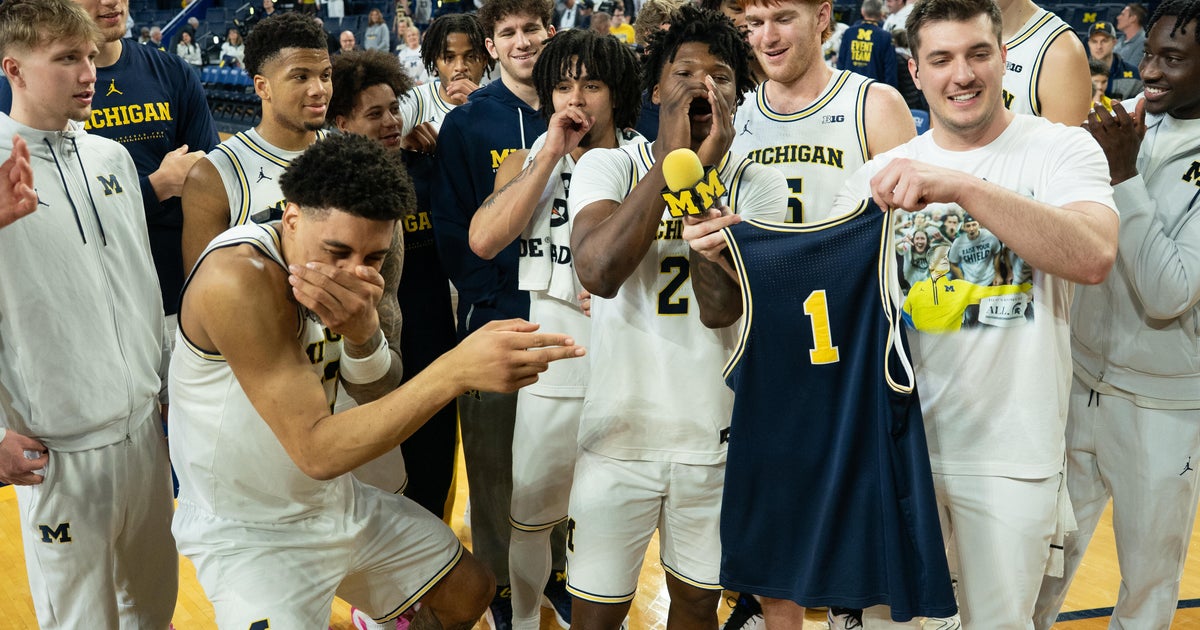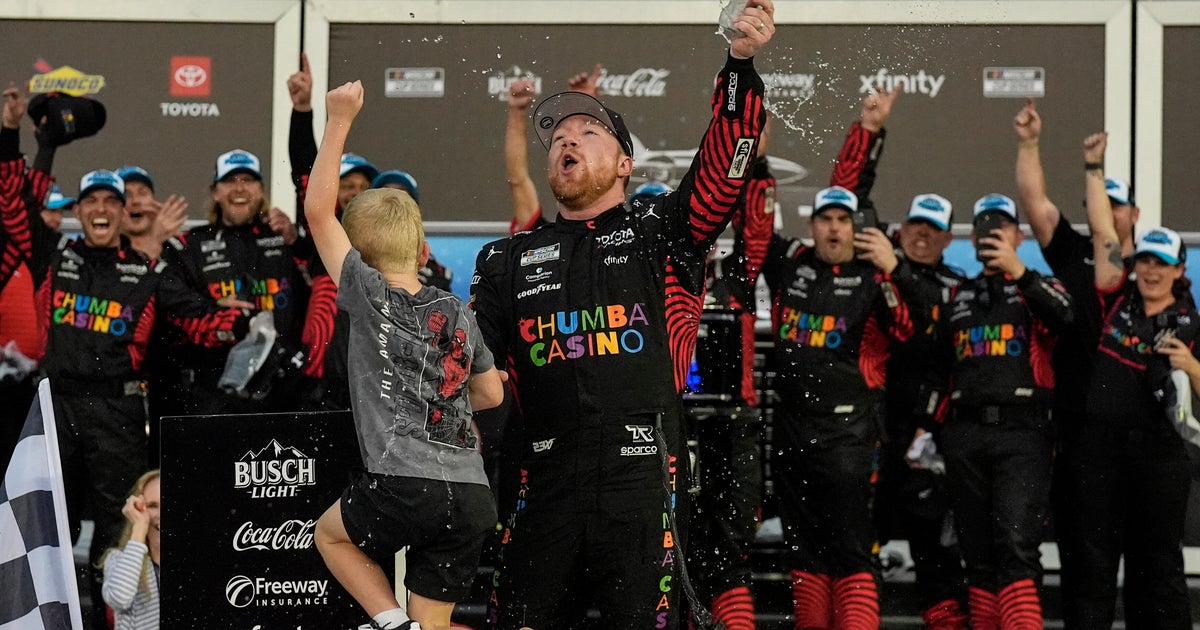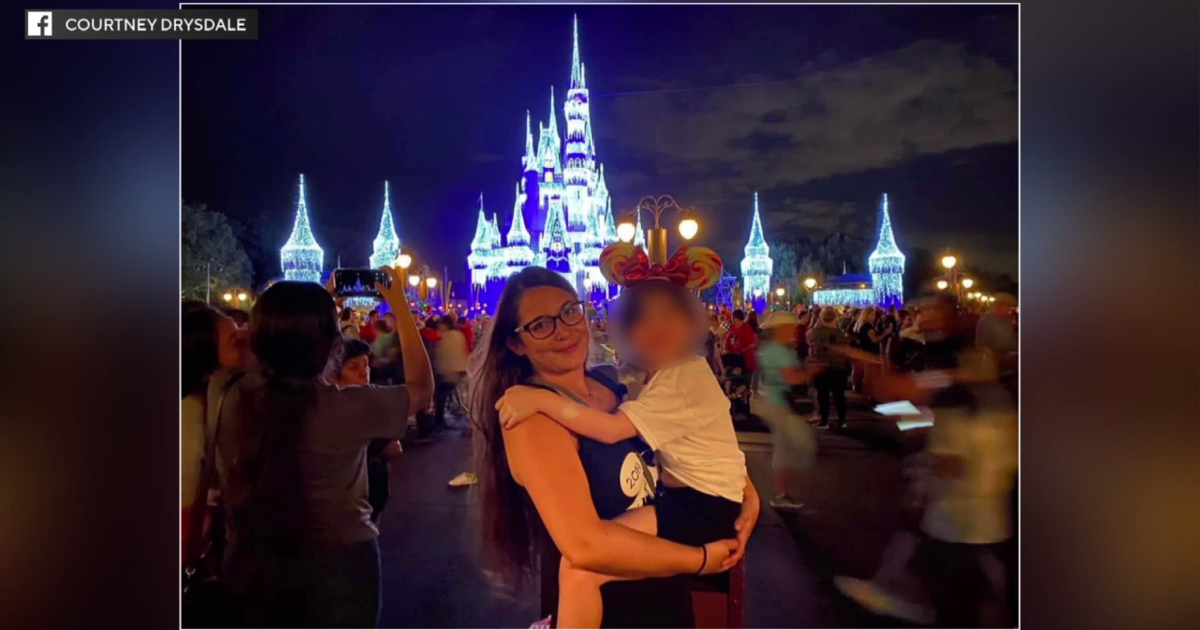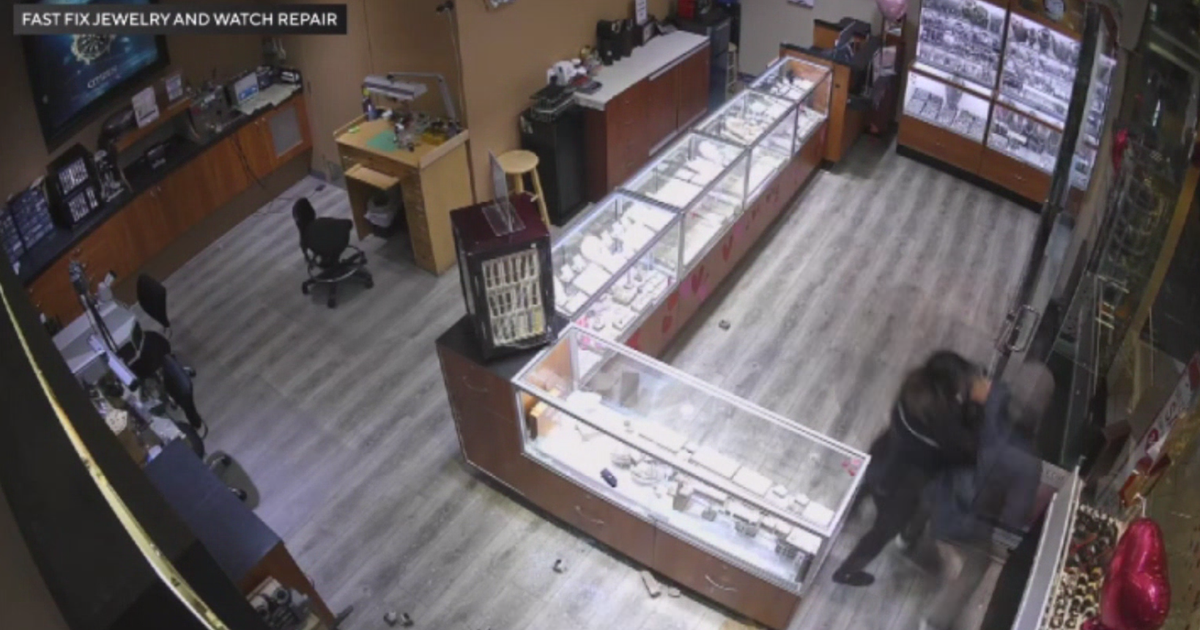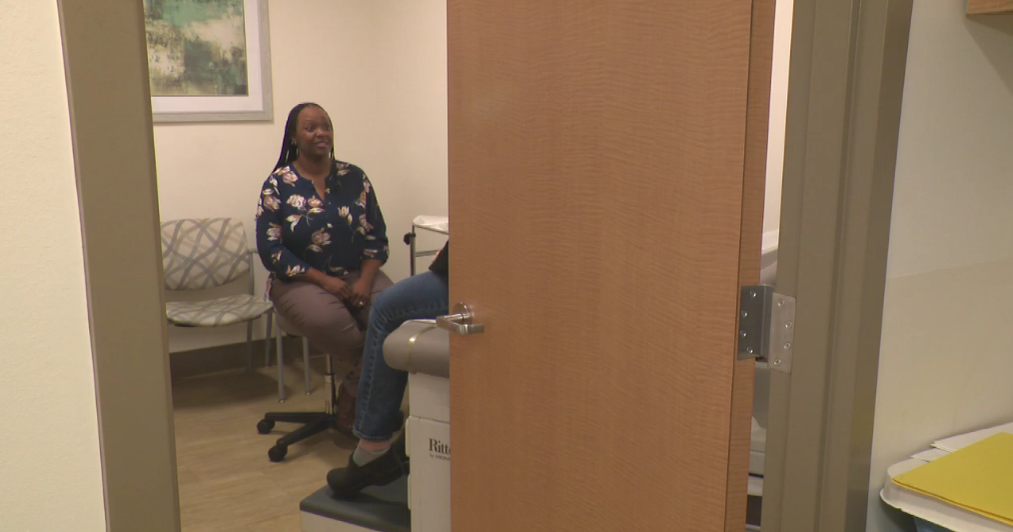Five Biggest Surprises In Masters History
AUGUSTA, Ga. (AP) — Tiger Woods is the overwhelming favorite when the Masters begins on Thursday. Trouble is, Augusta National doesn't play favorites.
If it did, Greg Norman would have a spot in the champion locker room. So would Curtis Strange, Ernie Els and a long list of others. Woods is the last No. 1 player in the world ranking to win the Masters, and that was 11 years ago. And while he's a good bet, just take a look at the last couple of years.
Not many thought Bubba Watson would be in a green jacket. Hardly anyone knew Charl Schwartzel outside of his native South Africa. Zach Johnson didn't hit the ball far enough or high enough, yet he became a Masters champion in some of the toughest weather.
Augusta National has a knack of delivering a few surprises, which leads to this list of the five most unlikely winners of a green jacket.
___
5. ART WALL JR.
During a nine-year stretch from 1958 through 1966, Arnold Palmer, Gary Player and Jack Nicklaus won the Masters every year but one — when Wall won in 1959.
That was a breakthrough season for Wall, who won four times, the money title and Vardon Trophy for lowest scoring average, along with being chosen PGA player of the year. Most notably, however, he won a green jacket.
Palmer and Cary Middlecoff were in the mix in the final round until Wall came up with one of the best finishes. He birdied five of his last six holes for a 66 to win.
Wall still has one distinction among Masters champions: He is the only winner who started the final round out of the top 10.
___
4. HERMAN KEISER
Keiser was a club pro, which was typical of his era. He left his job in 1942 to join the Navy for three years during World War II, and the best he could manage when he returned from the war was a runner-up finish four times, along with a win at the Miami Biltmore International Four-Ball with Chandler Harper.
He made a name for himself in 1946, the first Masters after the war.
Keiser took the lead on the third hole and never gave it up. He opened with rounds of 69-68, nearly missed his tee time in the third round and was given a 13-year-old caddie who was dragging his bag. In the final round, Keiser was sent out with Byron Nelson, while the betting favorite, Ben Hogan was in the last group. Keiser three-putted the 18th hole for a bogey and Hogan needed a par on the last hole to force a playoff, but he missed a short putt and Keiser was the winner.
Keiser won twice more that year, and he won another tour event in 1947. But he never won again.
The Ryder Cup resumed in 1947, and the Americans won 11-1. Keiser kept it from being a whitewash, losing to Sam King in singles.
___
3. FUZZY ZOELLER
Only two players had ever won the Masters playing Augusta National for the first time. One of them was Horton Smith, who won the inaugural tournament in 1934. The other was Gene Sarazen, who made an albatross on the 15th hole of the final round to catch Craig Wood, and then beat him in a playoff in 1935.
It took 44 years before another Masters rookie one.
Frank Urban Zoeller was known as "Fuzzy," and no one imagined him in a green jacket in 1979, especially because he started the final round six shots behind Ed Sneed. But then Sneed bogeyed his last three holes, setting up a three-way playoff at 8-under 280 among Sneed, Zoeller and Tom Watson.
They made par on the 10th hole, and the playoff headed to No. 11.
Sneed found a bunker and blasted out. Watson missed his birdie putt. Zoeller hit an exquisite approach to about 6 feet. When he holed the putt, he thrust his arms in the air.
He remains the last player to win the Masters on his first attempt.
___
2. ZACH JOHNSON
Johnson described himself as a normal guy from Cedar Rapids, Iowa, and not many would disagree. He traveled the country playing the mini-tours, toiled on the Nationwide Tour and had only one PGA Tour win when he arrived at Augusta National in 2006.
The conditions were harsh, cold with a strong wind, and it showed in the scores. Stuart Appleby had a one-shot lead over Woods going into the final round. Johnson was two shots behind, though no one had any reason to pay much attention. He had medium length off the tee, and employed a strange strategy for Augusta by never going for the green in two on any of the par 5s.
But it worked.
Johnson pulled away from Woods with three birdies in a four-hole stretch, closed with a 3-under 69 and wound up winning by two shots over Woods, Retief Goosen and Rory Sabbatini. It was the first time that Woods was in the final group at a major and left without the trophy.
___
1. LARRY MIZE
Mize was born in Augusta and went to school at Georgia Tech and had an otherwise ordinary career, winning the 1983 Danny Thomas Memphis Classic and never coming close to losing his card. In his four previous appearances at the Masters, he didn't have a top 10.
And even when he got into a playoff in the 1987 Masters, no one would have put their money on Mize. Joining him was Seve Ballesteros, who already had two Masters titles, and Norman, who had made bogey on the 18th hole the year before when Nicklaus won.
Ballesteros was eliminated on the first extra hole with a bogey on No. 10, and it looked as though Mize would be next. His approach on the 11th was to the right of the 11th green, while Norman had about a 30-foot birdie putt.
What followed was one of the most memorable chips in Masters history, and a crushing blow to Norman's psyche in the majors. Mize holed his chip from 140 feet, jumping in the air when it dropped in for birdie. Norman missed his putt and Mize, who had worked the scoreboard at the Masters as a teenager, was fitted for a green jacket.
